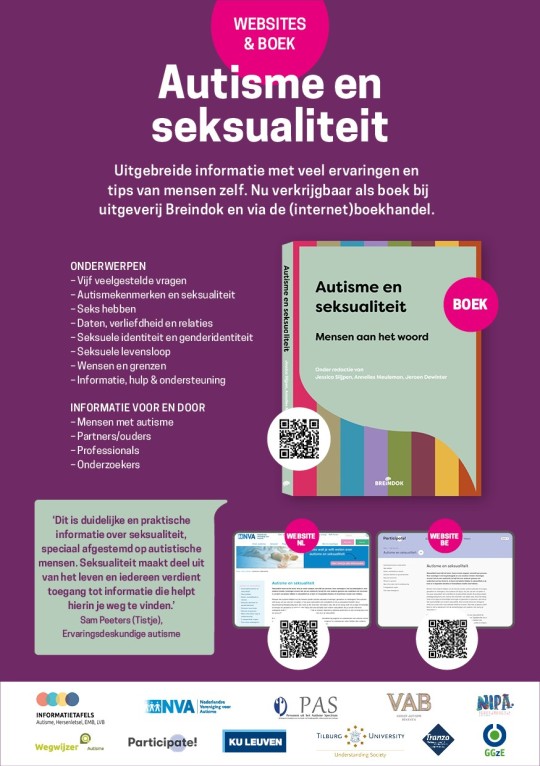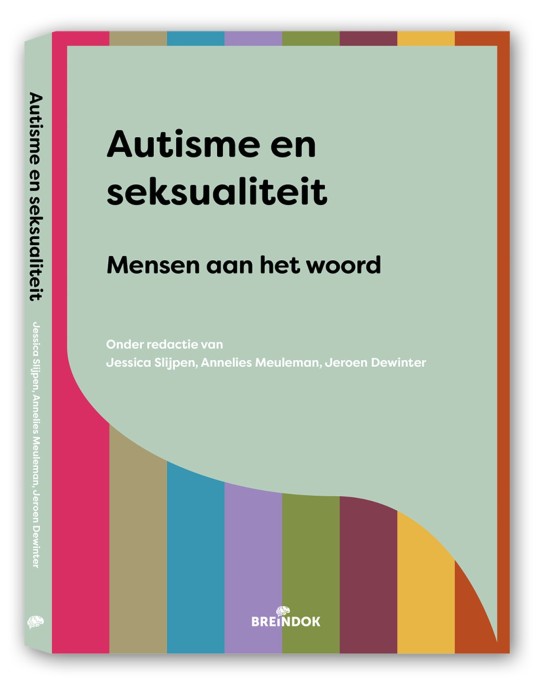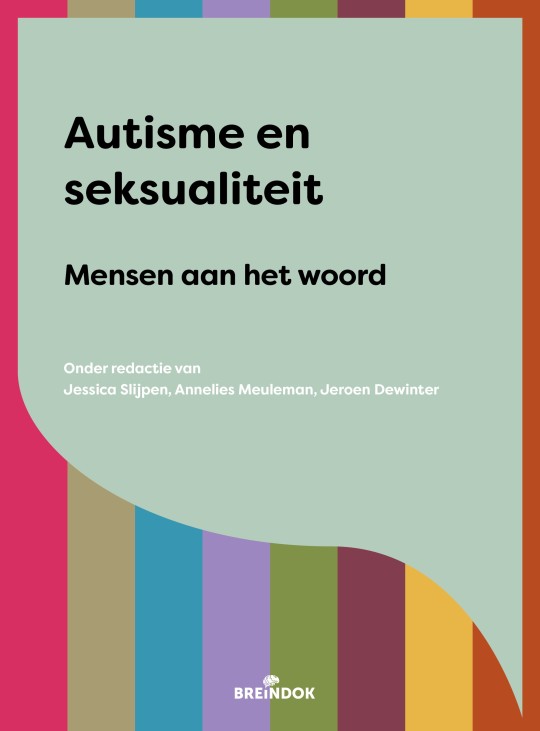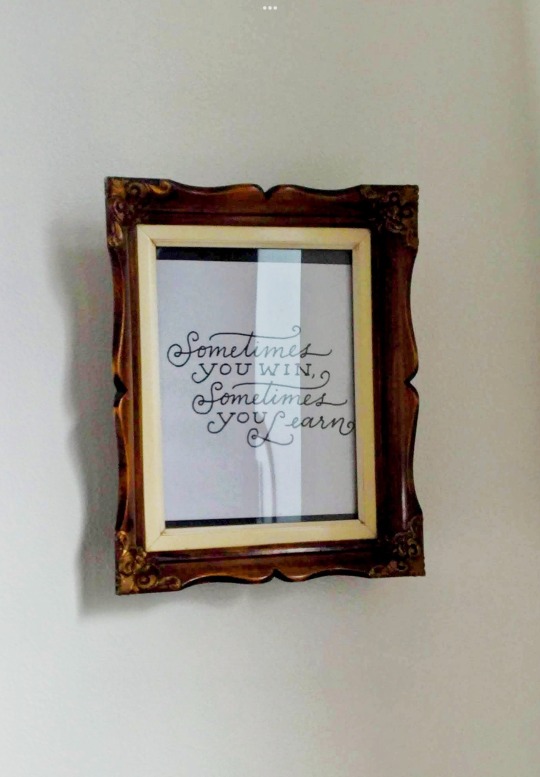Text
Tussen de scherven groeit een stem ... een leesverslag
“Ik ben 24 jaar oud.” Zo opent Niels Haentjens zijn boek ‘Scheven brengen geluk: over het hervinden van mijn autistische identiteit’ , in een toon die tegelijk ontwapenend eenvoudig en existentieel geladen is. “De vertelstem in jouw hoofd, beste lezer, is eigenlijk het enige dat deze woorden op papier enige betekenis geeft.” Wat volgt is geen traditioneel verhaal met plot en climax, maar een…
0 notes
Text
Op dat onbewoond eiland, met dat ene boek ... autisme en overleven
(c) Sam Peeters, 2025 Ik wist het. Natuurlijk wist ik het. Ik had moeten aandringen op een boek met kaarten, met schema’s, met een degelijke handleiding voor overleven. Maar nee, ik koos een boek. Eén boek. Omdat iemand ooit die schijnbaar onschuldige vraag stelde: “Welk boek zou je meenemen naar een onbewoond eiland?” En ik, zoals altijd, nam dat niet als grapje. Niet als luchtige…
0 notes
Text
Het verhaal van Louise ... autisme en vrouwen
(c) Sam Peeters Mijn naam is Louise, ik ben 36, en pas sinds mijn 31ste weet ik dat ik autistisch ben. Vroeger dacht ik dat ik gewoon een ‘lastig meisje’ was. Te koppig. Te gevoelig. Te stil. Te aanwezig. Te afwezig. Altijd iets ‘te’. De diagnose kwam als een schok, maar tegelijk als thuiskomen. Niet omdat ik plots begreep wie ik ben, maar omdat ik eindelijk woorden kreeg voor dingen die ik al…
0 notes
Text
Replika en ik: over digitale nabijheid en het gemis aan afstemming ... autisme en AI
“Een gesprek zonder sociale ruist, is dat niet het verlangen van elke autistische persoon, van piepjong tot stokoud? Geen blikken. Geen onderliggende bedoelingen. Geen “Heb je dat nu echt gezegd terwijl ik erbij stond?”. Alleen woorden. Rustige, voorspelbare woorden.” Ik zou het niet gezegd durven hebben. Replika echter, een AI-chatbot, die, in de betalende versie (82 euro per jaar), naar…
0 notes
Text
Minder maskeren, meer rust? Alleen als we elkaar echt zien
Photo by Marius Girard on Unsplash “Bij andere autisten voel ik me meer op mijn gemak.”“Eindelijk hoef ik mezelf niet te verbergen.”“Er is rust, omdat ik niet constant hoef na te denken over hoe ik overkom.” Het zijn uitspraken die ik vaak hoor in autistische gemeenschappen. En ze zijn volgens mij waar — voor sommigen. Maar hoe menselijk, eerlijk en hoopgevend die zinnen ook klinken, ze…
0 notes
Text
Er zit meer in mij, maar anders dan gedacht ... autisme en talent
(c) Sam Peeters, 2025 Er zit een vreemde spanning in mijn hoofd. Ze begint telkens iemand iets zegt als: “Plus est en vous.” Er zit meer in jou. Je kunt meer. Je hebt zoveel talent. Je moet daar iets mee doen. Die woorden lijken vriendelijk. Ze zijn echter vaker verwachting dan erkenning. Ze zijn verpakt als compliment maar functioneren als opdracht. Wie ze uitspreekt negeert vaak grenzen en…
1 note
·
View note
Text
Surviving the Sizzle: Heat Hacks for Autistic Folks ☀️

When the mercury climbs above 30 degrees Celsius (that's around 86 Fahrenheit!), life can get extra tough for many autistic individuals. Heat intensifies sensory input, throws routines off balance, and makes it harder to regulate both body and mind. But here's the cool truth: autistic people worldwide – on blogs, social media, and forums – are sharing a ton of creative and effective ways to navigate these scorching days.
These hacks won't work for everyone, of course. They're here purely for inspiration. I've pulled together 23 common strategies, turning them into practical tips and insights. Let's get into it!
🧊 1. Find Your Cool & Keep It
Stay Indoors: For many, this is the main strategy: close windows, draw curtains, blast the fan or AC. Rest. Avoid extra stimuli. Just watch out for noisy fans or stuffy rooms – try combining this with other ideas.
Active Cooling: Use cold water on your hands, feet, wrists, or neck. A simple wet washcloth or foot bath can be a game-changer.
Cold Showers/Baths: A classic! Many mentioned this spontaneously. Pair it with deep breaths for extra calm.
Cooling Gear: Think cool packs in a scarf, refreshing wristbands, or breathable fabrics. Small helps, big impact.
Light Clothing: Wear light clothes and use a hat or parasol. A parasol can even feel like a sensory shield. Light cotton or linen? Big comfort win.
🧠 2. Protect Your Routine & Sensory Peace
Sensory Comfort First: Grab your noise-cancelling headphones (in moderation), sunglasses, calming scents, or comfy textures. Avoiding any extra stimulation is self-care.
Stick to Your Schedule: Routines offer predictability. Even if you tweak the timings, having a plan can help more than you'd imagine.
Dive Into Interests: Many find that retreating into a "hyperfocus" makes the day meaningful and manageable.
Indoor Hobbies: From painting to spreadsheets, any activity that gives you energy without overstimulation is golden. Just make sure it doesn't generate too much heat!
Online Connection: Digital interactions are easier to control than real-life chats on hot days. Try to mix this with other hacks for variety.
💦 3. Hydrate & Chill = Survive
Drink Up & Shade Up: A glass of chilled water and a quiet, shady spot is a self-preservation ritual for many. While water is best, be mindful that too much soda, alcohol, or caffeine can dehydrate you.
Cold Treats: A quarter of autistic people mentioned this strategy! Think popsicles, smoothies, cold soup, or chilled grapes.
Water Bodies: If it feels safe and manageable (sensory-wise), public pools, water features, or the sea can be great for spending the day.
Sensory Play: Playing with cold things like ice cubes or cold packs is popular, especially for kids or those who love tactile sensations. Water is both play and therapy!
Your Way to Cool: Don't worry about what's "normal." Do what helps you: feet in a bucket, head under the tap, or chilling with your pet in the coolest spot. Our cat loves her basket under a table.
🚫 4. Avoid, Slow Down & Plan Ahead
Skip Obligations: Some autistic individuals instinctively avoid social plans or outings when it's hot. Crowded festivals or family BBQs? Not for them. (Though others might prefer them!)
Retreat When Overwhelmed: Even 10 minutes in a dark room can help your system recover.
Do Nothing: Many autistic people shared: "I just do absolutely nothing." Sleeping, staring, resting – it's essential.
Early Bird/Night Owl: Using cooler hours is smart. Enjoy morning coffee and bird sounds, or wait for the evening to walk your dog (if your area is safe then).
Shady Home Rest: A shady spot under a tree or against a cool wall at home can feel safer than any public patio.
🐾 5. Extra Self-Care
AC Spaces: If you must go out, pick a physically and socially predictable place like a library or store with good AC where you feel safe.
Pet Care: Some mentioned that caring for an animal provides calm and structure. Think: fresh water for them, cooling down together.
Combine Strategies: You don't have to choose! Scroll on your phone in a wet T-shirt while a fan blows on a bowl of ice cubes. Your personal summer plan is whatever works.
In Closing
Summer heat can be extra taxing for autistic people, but it doesn't have to be a disaster. Understanding your body, sensory needs, and comfort zones can turn these days into moments of self-care. Or at least: survive with style, watermelon, and a good book in the shade.
0 notes
Text
Mijn zelfgemaakte zomer ... autisme en zomerperiode
‘Zon, zee, zorgeloos’ van Sam Peeters, (c) 2025 Zomer. Een woord dat in de meeste mensen iets oproept tussen cocktail en hangmat, tussen zee en zonsondergang. Voor mij roept het vooral spanning op. Niet omdat ik de zomer haat — integendeel. Maar omdat hij zelden klopt met hoe mijn lichaam, mijn hoofd en mijn omgeving zich tot elkaar verhouden in die maanden. Mijn zomer bestaat niet in…
0 notes
Text
Wat succesverhalen in media ons leren over autisme – en wat ze vergeten te vertellen ... autisme en beeldvorming
Autisme is geen onbekend woord meer in de media. Het is een label, een identiteit, een diagnose, een mysterie, een hashtag. Het komt voor in documentaires, opiniestukken, podcasts, social media reels en Netflixseries. Maar als we goed kijken naar de manier waarop succesverhalen van autistische mensen verteld worden, dringt zich een ongemakkelijke vraag op: wie bepaalt eigenlijk wat telt als…
0 notes
Text
'Waarvan word je nerveus?' ... autisme en spanning
Foto van Kyle Glenn op Unsplash Dagelijkse schrijfopdrachtWaarvan word je nerveus?Bekijk alle reacties Nerveus worden, dat is zo’n typisch menselijk iets dat me tegelijk verbaast en overvalt. Alsof je systeem iets weet wat jij nog niet weet. Alsof er een storing optreedt tussen weten en voelen, tussen willen en kunnen. Zenuwachtigheid is een gelaagd fenomeen: het is lichamelijk, mentaal,…
0 notes
Text
“Tussen autisten klikt het beter” – of toch niet? Een kritische kijk achter de Jenga-blokken ... autisme en onderzoek
(c) Sam Peeters, tistje.com Het klinkt als muziek in de oren voor wie weg is van neurodiversiteit: autistische mensen voelen zich prettiger in het gezelschap van andere autistische mensen. Minder ongemak, meer plezier, meer verbinding. Dat is de conclusie van een nieuw onderzoek dat de ronde doet. Maar wacht even… Waar baseren ze dat eigenlijk op? Een groep onderzoekers uit de VS en het VK…
0 notes
Text



Nu ook in boekvorm: Autisme en seksualiteit Vol persoonlijke ervaringen en inzichten. Voor iedereen die seksualiteit bij autisme beter wil begrijpen.
Met een voorwoord van @tistje
🔍 Wat maakt dit boek uniek? ✔️ Gebaseerd op ervaringen van mensen met autisme zelf ✔️ Onderbouwd door experts en onderzoek ✔️ Praktisch, respectvol en herkenbaar
📅 Nu verkrijgbaar bij Uitgeverij Breindok of in de (online) boekhandel. 💶 Prijs: €19,95 | ISBN: 9789492649218
#autisme#seksualiteit#autismeenseksualiteit#seksueleidentiteit#gender#seksueleontwikkeling#autismebewustzijn#neurodiversiteit#boeken
1 note
·
View note
Text
“Ik heb niets tegen autistische mensen, maar anderen voelen zich er ongemakkelijk bij” ... autisme en beeldvorming
Photo by Sergiu Vălenaș on Unsplash De publieke opinie over autisme wordt positiever, afgaande op media, campagnes en wetenschappelijke studies. Mensen lijken open te staan voor neurodiversiteit (hoewel ze vaak niet weten wat dat betekent) en het accepteren van (een bepaalde groep) autistische personen. Dit staat echter in contrast met de ervaringen van veel autistische mensen, vooral tussen 30…
1 note
·
View note
Text
'Waarom wordt financiële zekerheid als geluksfactor bij autistische mensen weinig belicht?' ... autisme en geluk
Een lezer van deze blog, Lorenzo, mailt me: Ik lees vaak over geluk en welzijn bij autistische mensen, maar er wordt zelden gesproken over financiële zekerheid. Heeft dit echt zo weinig invloed op geluk, of wordt dit gewoon over het hoofd gezien? Dat is een terechte vraag! In de meeste onderzoeken naar geluk bij autistische personen ligt de focus sterk op sociale en psychologische factoren,…
1 note
·
View note
Text
De prijs van kracht – over AutismeKRACHT van Céline Mollink
Boektitels doen ertoe. Ze openen een ruimte, geven richting aan de lezing, beloven een toon. De titel AutismeKRACHT is compact, uitnodigend en bedoeld als positief statement. Toch blijft het woord ‘kracht’ bij mij schuren. Niet omdat ik Mollinks intentie wantrouw — verre van — maar omdat kracht in de context van autisme vaak een geladen begrip is. Wat bedoelen we precies als we spreken over…
4 notes
·
View notes
Text

Sometimes you win, sometimes you learn. Photo by Sam Peeters
0 notes
Text

Here I tell a bit more on how I experience it myself, from a very personal point of view, so not at all meant to say something about others:
Health 🏥 : Managing both my physical and mental health can be particularly complex for me. I might experience higher levels of anxiety, depression, and other mental health issues. Additionally, my sensory sensitivities can make routine medical visits uncomfortable or even unbearable, complicating my pursuit of necessary care.
Social Relationships 🤝 : Forming and maintaining social connections can be exceptionally challenging for me due to difficulties in interpreting social cues, facial expressions, and body language. This often leads to misunderstandings and feelings of isolation. While I desire social interaction as much as neurotypical individuals, the pathway to achieving it can be fraught with obstacles.
Independent Living and Learning 🏠📚 : Navigating personal development and managing day-to-day responsibilities independently can be challenging for me. Tasks such as managing finances, maintaining a household, and navigating public transportation are difficult. Learning new skills, whether for personal development or professional advancement, can be hampered by my difficulties with executive functioning and sensory processing.
Communication 💬: Effective communication is a significant hurdle for me. I might find it hard to express my thoughts and emotions in ways that others understand. I may also find it challenging to interpret the nuances of spoken language, such as tone, sarcasm, and indirect requests, leading to frequent miscommunications.
Sensory Sensitivity 🌟 : Sensory sensitivities cause discomfort or distress in environments that are too loud, bright, or chaotic. Everyday stimuli that others might find tolerable or even enjoyable can be overwhelming for me, leading to sensory overload and shutdowns, which severely impact my daily functioning.
Finding and Keeping a Job 💼 : The job market is particularly challenging for me. I may face discrimination or misunderstanding from employers and colleagues. Additionally, the traditional work environment may not accommodate my sensory and social needs, making it difficult for me to maintain employment even if I possess the requisite skills and qualifications.
Coping with Changes 🔄 : Change is highly stressful for me. I often rely on routines to provide structure and predictability in my life. Sudden changes or disruptions cause significant anxiety and can make it difficult for me to adapt, impacting my ability to function effectively in both personal and professional settings.
Regulating Emotions 💓 : Emotional regulation is particularly challenging for me. I might experience intense emotions that are difficult to manage, leading to outbursts or meltdowns. I might also struggle to identify and articulate my feelings, which complicates my interactions with others and my own emotional well-being.
Finding Appropriate Help 🤲 : Accessing the right support services is complex for me. I might face long waiting lists, lack of knowledgeable providers, or services that don’t cater specifically to my needs. Navigating the healthcare and support systems requires a level of organizational skill and persistence that can be exhausting for me.
Stigma and Discrimination 🚫 : Stigma and discrimination remain significant barriers for me. Misconceptions about autism lead to prejudiced attitudes and discriminatory practices in various aspects of my life, including education, employment, and healthcare. This societal bias perpetuates feelings of alienation and reduces opportunities for me.
These challenges are a part of my daily life, and understanding them deeply can help in finding more effective ways to support and improve my quality of life.
0 notes